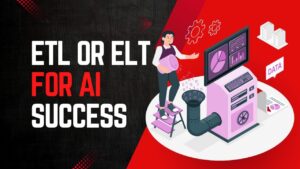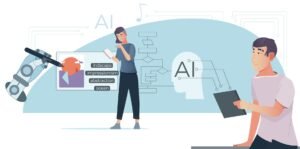Imagine a bustling workplace where every employee has a unique skill set—one excels at crunching numbers, another at crafting emails, and yet another at solving technical issues. Now, picture a manager who assigns tasks to the right person, ensures everyone works together, and keeps the workflow smooth. In the world of artificial intelligence, this manager is called an orchestrator agent. These specialized AI systems are transforming how businesses use AI by coordinating multiple AI agents to tackle complex tasks efficiently.
As AI adoption grows, organizations deploy various AI tools, each designed for specific purposes like customer service, data analysis, or process automation. However, without coordination, these tools can operate in silos, leading to inefficiencies and fragmented experiences. Orchestrator agents step in to unify these efforts, acting like conductors in an orchestra, ensuring each agent plays its part at the right time to create a harmonious outcome. In this article, we’ll explore what orchestrator agents are, how they work, their benefits, challenges, and real-world applications, all explained in simple terms with analogies and examples.
On This Page
Table of Contents
What Are AI Agents?
Before diving into orchestrator agents, let’s clarify what AI agents are. An AI agent is a software program that can perceive its environment, make decisions, and take actions to achieve specific goals. Unlike traditional software that follows strict rules, AI agents often use advanced technologies like machine learning or natural language processing to adapt and learn.
AI agents come in various forms, each tailored to specific tasks:
- Task-oriented agents: Handle specific functions like data retrieval, image recognition, or process automation.
- Conversational agents: Interact with users through chat or voice, answering questions or assisting with transactions.
- Decision-making agents: Analyze data and make choices, such as recommending products or detecting fraud.
For example, a conversational agent might assist a customer with a product inquiry, while a decision-making agent could analyze inventory data to reorder stock. However, these agents are often specialized, meaning they excel in their domain but may struggle with tasks outside their expertise. This specialization creates the need for coordination, which is where orchestrator agents shine.
The Role of Orchestrator Agents
An orchestrator agent is a specialized AI agent that manages and coordinates the activities of other AI agents. Think of it as a project manager who assigns tasks, monitors progress, and ensures everyone collaborates effectively. Its key responsibilities include:
- Task Allocation: Identifying the best agent for a task based on its skills and availability. For instance, a billing query goes to a billing agent, not a technical support agent.
- Workflow Management: Defining the sequence of tasks needed to complete a complex process, ensuring dependencies are met and tasks flow logically.
- Communication Facilitation: Enabling agents to share information, often through shared databases or standardized protocols, to maintain context and consistency.
- Performance Monitoring: Tracking how agents perform, identifying bottlenecks, and optimizing workflows for better results.
To illustrate, consider a customer contacting a company with multiple requests: checking their account balance, updating their address, and scheduling a service appointment. An orchestrator agent analyzes the query, routes the balance check to a billing agent, the address update to a profile management agent, and the appointment request to a scheduling agent. By coordinating these efforts, the orchestrator ensures the customer gets a seamless experience without delays or confusion.
This role is often compared to a conductor in an orchestra. Just as a conductor directs musicians to play their instruments at the right time, an orchestrator agent ensures AI agents work together to produce a cohesive outcome. This analogy highlights the orchestrator’s ability to harmonize diverse components into a unified system.
Types of AI Agent Orchestration
Not all orchestration systems are the same. Depending on the needs of the organization, AI agent orchestration can take different forms, each with unique strengths and applications. Here’s a breakdown of the main types:
| Type | Description | Advantages | Disadvantages |
|---|---|---|---|
| Centralized | A single orchestrator directs all agents, controlling their actions and workflows. | Consistency, control, predictable outcomes | Single point of failure, scalability limits |
| Decentralized | Agents communicate directly with each other, collaborating without a central controller. | Scalability, resilience, no single failure point | Complex coordination, potential conflicts |
| Hierarchical | Agents are organized in layers, with higher-level orchestrators managing lower-level agents. | Balances control and autonomy, scalable | Complex design, potential bottlenecks |
| Federated | Independent agents or organizations collaborate without fully sharing data, prioritizing privacy. | Privacy-focused, secure, ideal for sensitive industries | Limited data access, coordination challenges |
- Centralized Orchestration: Best for environments needing strict control, like a bank managing financial transactions. A single orchestrator ensures all agents follow the same rules, reducing errors.
- Decentralized Orchestration: Suited for dynamic settings, such as e-commerce platforms where agents for inventory, recommendations, and payments collaborate directly to adapt to real-time changes.
- Hierarchical Orchestration: Useful in large organizations, like hospitals, where higher-level orchestrators manage departments (e.g., diagnostics, scheduling) while lower-level agents handle specific tasks.
- Federated Orchestration: Ideal for industries like healthcare or finance, where data privacy is critical. For example, hospitals can share insights without exposing patient data.
Choosing the right type depends on factors like system complexity, scalability needs, and privacy requirements.
How AI Agent Orchestration Works
Implementing AI agent orchestration involves a series of steps to create a cohesive system. Here’s how it typically works, explained in simple terms:
- Assessment and Planning: Organizations evaluate their AI tools and define goals. For example, a retailer might want to streamline customer support and inventory management.
- Selecting Specialized Agents: Choose agents tailored to specific tasks, such as a billing agent for payments or a recommendation agent for product suggestions.
- Setting Up the Framework: Integrate agents into a unified system using orchestration tools. This includes defining task sequences and enabling data access through APIs.
- Task Assignment: The orchestrator dynamically assigns tasks to agents based on their expertise and current workload. For instance, a customer query about a refund goes to the billing agent.
- Workflow Coordination: The orchestrator manages the sequence of tasks, ensuring dependencies are met. For example, confirming inventory before processing an order.
- Data Sharing: Agents share information through a common memory or database, maintaining context across tasks. This ensures a support agent knows what a billing agent discussed with a customer.
- Continuous Improvement: The system monitors performance, identifies inefficiencies, and refines workflows, often using machine learning to adapt over time.
For example, in a telecom company, a customer might request a plan change. The orchestrator routes the request to a plan management agent, which checks eligibility, then to a billing agent to update charges, and finally to a confirmation agent to notify the customer. This coordinated process ensures a smooth experience.
To give a technical glimpse, here’s a simple Python script showing how an orchestrator might route tasks to specialized agents:
class Orchestrator:
def __init__(self):
self.agents = {
"billing": BillingAgent(),
"support": SupportAgent(),
"sales": SalesAgent()
}
def route_task(self, task):
if "billing" in task.lower():
return self.agents["billing"].handle(task)
elif "support" in task.lower():
return self.agents["support"].handle(task)
elif "sales" in task.lower():
return self.agents["sales"].handle(task)
else:
return "Task not recognized."
class BillingAgent:
def handle(self, task):
return "Handling billing task: " + task
class SupportAgent:
def handle(self, task):
return "Handling support task: " + task
class SalesAgent:
def handle(self, task):
return "Handling sales task: " + task
# Usage
orchestrator = Orchestrator()
print(orchestrator.route_task("Check my bill"))
# Output: Handling billing task: Check my bill
This script simplifies the concept, showing how an orchestrator directs tasks based on keywords. In real systems, orchestrators use advanced techniques like natural language processing to understand intent and route tasks more intelligently.
Benefits of Orchestrator Agents
Using orchestrator agents offers several advantages that make them invaluable for businesses:
- Enhanced Efficiency: By automating task allocation and streamlining workflows, orchestrators reduce manual effort and speed up processes.
- Improved User Experience: Coordinated agents provide seamless, personalized interactions, ensuring customers or employees get accurate and timely responses.
- Scalability: Orchestrators can handle growing workloads by dynamically managing more agents or tasks without compromising performance.
- Agility and Flexibility: They adapt quickly to changing needs, such as new business rules or market conditions, by reconfiguring workflows.
- Increased Reliability: Redundancy and failover mechanisms ensure the system remains operational even if an agent fails.
- Self-Improving Workflows: Machine learning enables orchestrators to optimize processes over time, learning from past performance.
For instance, a retail company using orchestrator agents can manage inventory, process orders, and handle customer inquiries simultaneously, improving efficiency and customer satisfaction.
Challenges and Considerations
While orchestrator agents are powerful, they come with challenges that organizations must address:
- Complexity: Designing a multi-agent system requires careful planning to ensure agents work together effectively.
- Interoperability: Agents from different vendors or platforms may use different protocols, making integration tricky. Standardized APIs can help.
- Security and Privacy: Sharing data among agents raises concerns about data protection, especially in industries like healthcare. Encryption and access controls are essential.
- Performance Monitoring: Continuous tracking is needed to identify and fix issues, such as an agent underperforming or a workflow bottleneck.
- Cost: Implementing orchestration systems can be expensive, requiring investment in technology, expertise, and maintenance.
By anticipating these challenges and implementing robust solutions, organizations can maximize the benefits of orchestration.
Real-World Examples and Use Cases
Orchestrator agents are making a difference across industries. Here are some examples:
- Customer Service: In a call center, an orchestrator routes customer queries to specialized agents for billing, technical support, or sales. This ensures quick, accurate responses, as seen in platforms like Teneo.
- Healthcare: Hospitals use orchestrators to coordinate agents for patient record retrieval, appointment scheduling, and symptom checking, ensuring comprehensive care while maintaining data privacy.
- Finance: Banks employ orchestrators to manage agents for fraud detection, customer verification, and financial advice, enhancing security and service quality.
- Retail: E-commerce platforms like Amazon use orchestration to coordinate agents for inventory management, personalized recommendations, and order processing, optimizing operations and customer experiences.
These examples show how orchestrator agents enable organizations to handle complex tasks efficiently, delivering better outcomes for customers and employees.
Implementing AI Agent Orchestration
To implement AI agent orchestration, organizations can use various tools and platforms designed for this purpose. Some popular options include:
- Teneo: Offers modular orchestration with features like cross-agent context sharing and real-time data retrieval .
- IBM watsonx Orchestrate: Provides robust workflow automation and agent coordination capabilities (IBM).
- Microsoft Power Automate: Enables integration of AI services into automated workflows, suitable for business applications.
Open-source frameworks like LangChain also allow organizations to build custom orchestration solutions tailored to their needs.
When choosing a platform, consider factors like ease of integration, support for specific AI models, scalability, and cost. The implementation process typically involves assessing needs, selecting agents, setting up the framework, and continuously optimizing the system.
Conclusion
As AI becomes a cornerstone of modern business, the need to coordinate specialized AI agents grows. Orchestrator agents are the key to unlocking the full potential of these systems, acting as conductors that harmonize diverse agents into a unified, efficient workflow. By understanding their role, types, benefits, and challenges, organizations can leverage orchestrator agents to streamline operations, enhance user experiences, and drive innovation.
Whether it’s managing customer service queries, coordinating healthcare services, or optimizing retail operations, orchestrator agents are paving the way for smarter, more collaborative AI ecosystems. As technology evolves, their role will only become more critical, making them a cornerstone of the AI-driven future.

FAQs
What is an orchestrator agent?
An orchestrator agent is a type of AI agent that manages and coordinates multiple specialized AI agents to work together efficiently, ensuring tasks are completed seamlessly.
How does an orchestrator agent differ from a regular AI agent?
While regular AI agents are specialized for specific tasks, orchestrator agents oversee and coordinate these agents, managing workflows and ensuring smooth collaboration.
What are the benefits of using orchestrator agents?
Benefits include enhanced efficiency, improved user experience, scalability, agility, increased reliability, and self-improving workflows.
What are the different types of AI agent orchestration?
There are centralized, decentralized, hierarchical, and federated types, each with its own advantages and use cases.
How does AI agent orchestration work?
It involves assessment and planning, selecting specialized agents, setting up the framework, task assignment, workflow coordination, data sharing, and continuous improvement.
What are some challenges associated with orchestrator agents?
Challenges include complexity, interoperability issues, security and privacy concerns, performance monitoring, and cost.
How do orchestrator agents integrate with other AI technologies like machine learning models or natural language processing?
Orchestrator agents can integrate with various AI technologies by coordinating tasks that involve different specialized agents, each leveraging specific AI capabilities like machine learning for predictions or NLP for understanding user queries.
How might orchestrator agents impact job roles and business operations?
Orchestrator agents can automate complex workflows, potentially reducing the need for human intervention in routine tasks, allowing employees to focus on strategic activities. Businesses may need to adapt their operations to leverage these agents for improved efficiency and innovation.
Will orchestrator agents replace human decision-making entirely?
No, they are not designed to replace human decision-making entirely. While they can automate workflows and make decisions based on rules, they lack nuanced understanding and ethical judgment, augmenting human capabilities instead.
How will orchestrator agents evolve with advancements in AI, such as generative AI or autonomous AI?
As AI evolves, orchestrator agents will become more sophisticated, coordinating agents that create content with generative AI or managing autonomous systems, potentially incorporating self-learning capabilities.
What role will orchestrator agents play in ethical AI and bias mitigation?
They will play a crucial role in ensuring ethical AI by monitoring and balancing agent outputs to reduce bias, enforcing ethical guidelines, and ensuring compliance with regulations like GDPR.
How Orchestrator Agents Are Making AI 10x More Efficient: A Must-Read for Tech Innovators









